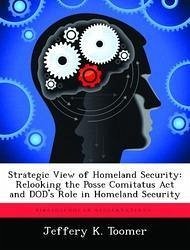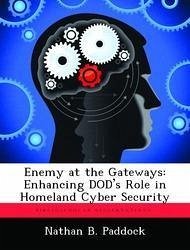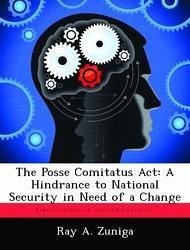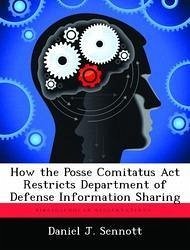Nicht lieferbar

Strategic View of Homeland Security: Relooking the Posse Comitatus Act and DOD's Role in Homeland Security
Versandkostenfrei!
Nicht lieferbar
Today, the developing global economy, the revolution in information technologies, and other advances of technology have added new dimensions to the homeland security paradigm. Recent events both at home and abroad, and especially the terrorist attacks of September 11, 2001, have demonstrated the emergence of this current complex threat situation and highlight America's growing vulnerability in the domestic arena. The seriousness of this latest incident beckons one to ask what steps the U.S. government should take to prevent future tragedies like these from happening. While the FBI and FEMA hav...
Today, the developing global economy, the revolution in information technologies, and other advances of technology have added new dimensions to the homeland security paradigm. Recent events both at home and abroad, and especially the terrorist attacks of September 11, 2001, have demonstrated the emergence of this current complex threat situation and highlight America's growing vulnerability in the domestic arena. The seriousness of this latest incident beckons one to ask what steps the U.S. government should take to prevent future tragedies like these from happening. While the FBI and FEMA have lead agency responsibilities for crisis management and consequence management, respectively, many suggest an increased role for DOD in homeland security-especially Army units-who have the forces most capable of responding to biological and chemical terrorism, possibly the Nation's greatest threat. But in terms of responding to homeland emergencies, the Posse Comitatus Act severely limits the involvement of regular military forces during federal emergencies, even when they may be the most adequate organization to respond to such incidences. This monograph examines DOD's role in Homeland Security and the viability of the Posse Comitatus Act when viewed through the rubric of the current threat environment. By exploring DOD's historic role in the defense of the U.S. homeland and the advent of the Posse Comitatus Act-its history, application, and weakening over the last couple of decades-the monograph seeks to determine if regular Armed Forces (and specifically the active Army) should play a more significant role in the homeland security mission. In the monograph, the author acknowledges the significance of the Posse Comitatus Act in American history as an evolution of the Nation's long-standing fear of standing army involvement in domestic affairs, but posits that in today's strategic and domestic environment in the U.S. the Act has limited application or impact. By focusing on







